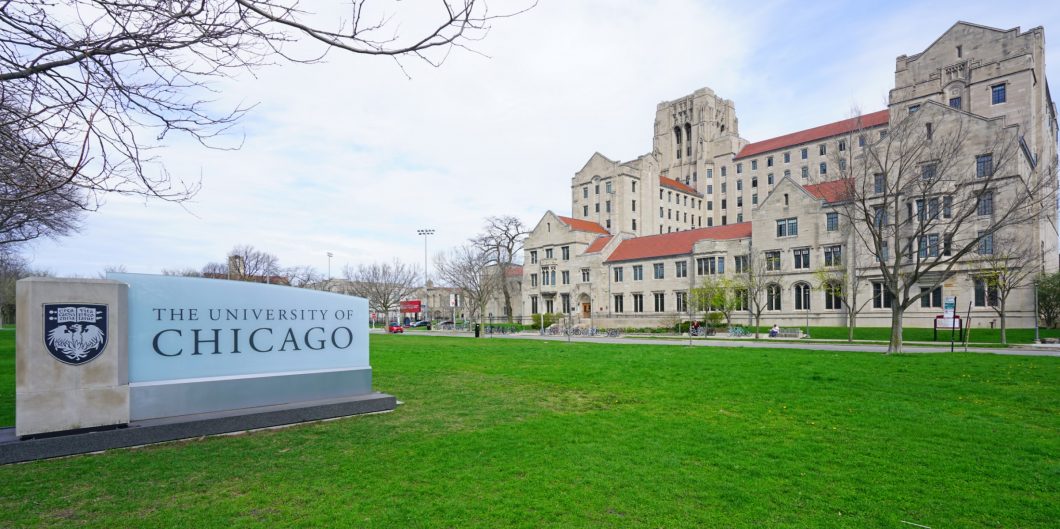In the battle over children's literature, we ought to remember that the distinction between words and deeds is a key marker of civilisation.
The Kalven Report: Medicine or Poison?
With great respect and great reluctance, I write to explain my disagreement with the analysis and recommendations in John McGinnis’s recent essay, “Addressing the Rot in Our Universities.”
The importance of the problems identified in Professor McGinnis’s essay cannot be denied. To our horror, universities have become the spawning grounds for a murderous antisemitism, vile to a degree that stunned many observers in the immediate aftermath of October 7, 2023. It was nauseating to listen as student demonstrators chanted slogans supporting the extermination of every Israeli citizen.
Antisemitism is a symptom of a grave disease in the body politic. The antisemitism washing over some of our most prominent universities is, quite simply, a cultural disaster. Its effects are compounded by the fecklessness, cynicism, and easily spotted lack of enthusiasm with which the universities have responded to this barbarity. The initial reaction of university spokespersons to pro-Hamas demonstrations calling for the outright destruction of Israel was both tardy and grudging. Even when financial pressure elicited more robust “condemnations,” the message was diluted in at least two ways: first, by reciting far-fetched comparisons between the effects of these demonstrations on Jewish students and Muslim ones; and second, by the universities’ apparent unwillingness to back those condemnations up by dismissing the perpetrators. Even two months after Hamas’s deadly sneak attack on Israeli civilians, university presidents testifying before a Congressional committee could not bring themselves to denounce the wave of antisemitism engulfing their institutions without including “nuances” that undercut the message. (It is encouraging that one of those university presidents resigned four days later, but we must keep in mind that cleaning the Augean stables is a heroic task, requiring Herculean efforts.)
While I agree with Professor McGinnis’s diagnosis—that modern universities are afflicted by rot, as he puts it—I do not agree about the etiology of the disease. In particular, I do not think the “rot” ultimately can be explained by the factors to which his essay points: failure to adopt the 1968 Kalven Committee Report; the establishment of university departments promoting “diversity, equity, and inclusion”; intersectionality; or identity politics. I do not think these phenomena get to the root of the matter.
A full account of my opinions on this topic is for another day. Here, I will try to show that Professor McGinnis’s faith in the therapeutic power of the Kalven Report is misplaced. That report, issued in 1968 by a faculty committee of the University of Chicago, recommends that the university as an institution maintain strict neutrality, manifested by strict silence, on political and social issues of the day (other than those which directly impinge on the university’s educational function). The premises of the Kalven Report are inconsistent with Professor McGinnis’s conception of the university. Far from helping to raise collegiate education from its current degraded state, the underlying assumptions on which the Kalven Report is based only contribute to the rot.
The Kalven Report’s Rejection of Enlightenment Principles
Let me first identify the core conception underlying Professor McGinnis’s essay. He writes:
[The university’s] comparative advantage lies in the ability to diffuse knowledge, not to draw political lines. … Over time, one can hope that more knowledge will help others to draw better moral and political lines. … [Leaving individuals] to draw their own descriptive, pragmatic, and moral conclusions … accentuates the epistemic openness that should be the hallmark of the university and its unique role in transcending partisan and ideological differences in a search for truth and understanding.
This account of a well-functioning university’s role is easily recognizable. It is the idealized conception of institutions of learning belonging to classical liberalism, and specifically to the thought of the Enlightenment. That thought is characterized by the belief that human happiness and welfare increase with the refinement and diffusion of knowledge, specifically scientific knowledge. It was evident to Enlightenment thinkers that in an atmosphere of free discussion and reasoned debate, knowledge would increase as differing accounts of the phenomena were verified or falsified.
Adopting the Kalven Report will not cure the rot in Western universities.
The Kalven Committee’s report tempts the reader to think that its conclusions are grounded on the paradigm inherent in classical liberalism. The enticement begins with the announcement that “the mission of the university is the discovery, improvement, and dissemination of knowledge.” Next, it invokes an idealized image of what it calls “[the] community of scholars.”
[The university] is, to go back once again to the classic phrase, a community of scholars. To perform its mission in the society, a university must sustain an extraordinary environment of freedom of inquiry and maintain an independence from political fashions, passions, and pressures. A university, if it is to be true to its faith in intellectual inquiry, must embrace, be hospitable to, and encourage the widest diversity of views within its own community.
Ostensibly reasoning from these premises, the Kalven Committee derived the following conclusions:
The neutrality of the university … arises out of respect for free inquiry and the obligation to cherish a diversity of viewpoints. And this neutrality as an institution has its complement in the fullest freedom for its faculty and students as individuals to participate in political action and social protest. It finds its complement, too, in the obligation of the university to provide a forum for the most searching and candid discussion of public issues. (emphasis added)
These conclusions are non-sequiturs. The conclusion reached in the emphasized sentence is not a “complement” (that is, a corollary) of a university’s “respect” for academic freedom or its newly-mentioned “obligation to cherish” diverse viewpoints. The exchange of diverse opinions can go on perfectly well within the university community without the community’s engagement in “political action and social protest” outside the university.
In fact, public political action by members of a university community can impede the effective dissemination of knowledge to a wider society, although the Kalven Report glides silently past this difficulty. A public protest necessarily involves simplifying an idea for public consumption. The coinage of public protests is the slogan. Sloganeering is at best the dissemination of a conclusion that may be based on knowledge, but it is not the dissemination of the knowledge itself. The society outside the university is excluded from whatever reasoned discussion may have preceded the slogan’s formulation, like a child dismissed from a conversation about too mature a subject.
Political or social protest by a faculty member also stands as a potential obstacle to disseminating knowledge by impeaching the faculty member’s reputation for neutrality and objectivity in scholarly work—a reputation on which his, or her, their credibility stands or falls. It is widely understood that people especially cherish their own opinions, and sometimes cling to them stubbornly. Knowing this human frailty, the public will at least wonder when a scholar writes about the subject matter of a protest in which the scholar participated: was the scholarship influenced more by amour-propre than by the merits? The Kalven Report does not even acknowledge this problem, effectively denying its existence sub silentio. By doing so, it reveals its departure from the model of the university Professor McGinnis has in mind.
Indeed, the clearest evidence of the post-Enlightenment premises of the Kalven Report can be found in what it does not say, after first inviting the reader to think that the free exchange of differing opinions among the professoriate is the engine that powers the Truth Bus. It leads the reader toward, but not quite to, a notion familiar to all of us, known as “the marketplace of ideas.” That notion became a staple of twentieth-century First Amendment jurisprudence following its first appearance in a dissent by Justice Holmes in Abrams v. United States. Yet, while the Kalven Report hints that unlimited freedom of opinion in academia drives out false opinions like shoddy products, it nowhere says so explicitly, and it does not invoke “the marketplace of ideas” or anything similar where it would be natural to do so.
The absence of a model like the marketplace of ideas from the Kalven Report is a cause for wonder. What accounts for this clearly intentional omission? Not unfamiliarity with the concept. Only eight years earlier, Professor Kalven had invoked the marketplace of ideas in a scholarly article. See A Commemorative Case Note: Scopes v. State, 27 U. Chi. L. Rev. 505, 516–17 (1960): “Classic free speech theory … is keyed … to confidence that truth will not be bested in a fair fight, to competition in the marketplace of ideas.” The only plausible explanation for the exclusion of this model from the Kalven Report is that by 1968, the majority of the Committee’s constituency no longer believed that the pursuit of truth was a philosophically plausible goal. In the groves of academe, truth had become the primordial air quotes word. Thus, as the sponsor of a community of scholars, the university protects the right to express every point of view, not because that protection might lead somewhere, but because the community of scholars no longer believes that any point of view is demonstrably more valid than any other. Within the University, the mutual tolerance of every point of view is a rule of good deportment, not a doorway to greater knowledge. Far from adhering to the classical liberal model of the university implicit in Professor McGinnis’s essay, then, the Kalven Report is steeped in relativism.
The Kalven Report and the Frankfurt School
Either alone or in conjunction with Professor McGinnis’s other suggestions, adopting the Kalven Report will not cure the rot in Western universities. On the contrary, adopting the Kalven Report is particularly ill-advised given one of the root causes of the crisis in the universities: the remarkable success of the Frankfurt School in supplanting other modes of social and political thought. The animating principle of the Frankfurt School and its “critical studies” offspring is the complete rejection of Enlightenment ideals. This entails categorically denying the validity of any account of social and political phenomena that proceed from any context that is not perfectly egalitarian. The Frankfurt School simply does not accept even the rule of mutual tolerance underpinning the Kalven Report. It is a factory of intolerance.
Moreover, as I hope to show elsewhere, the extent of the rot in our universities is partly a function of events that precede college matriculation, such as trends in modern child-rearing; the cult-like worship of the college degree; and woefully deficient secondary school education. Thus, while I agree that responsible people should refrain from contributing to Harvard, UPenn, and most other Universities, I do not think those donors should fund conservative-friendly university programs of the kind Professor McGinnis suggests. These small enclaves will not keep culture alive during a dark age. At best, they will be redoubts to which a handful of unbiased thinkers can retreat until an imaginary cavalry arrives. Instead of this quixotic enterprise, the donors should re-direct their contributions to supporting the creation of meaningful paths to adulthood other than a university education, and to better prepare those students who want a university education for the challenges to their opinions that education entails.



